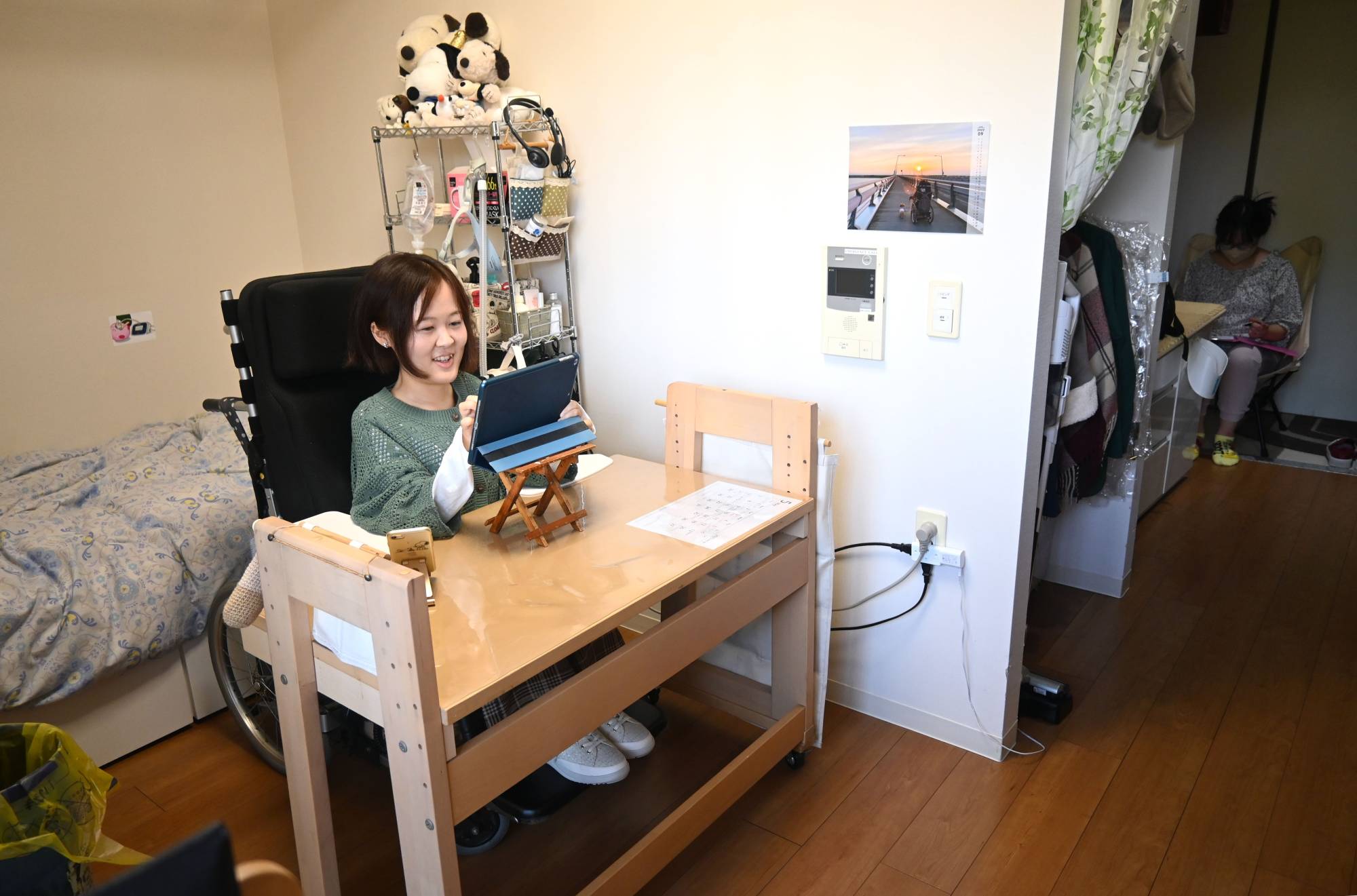It was around noon when she awoke after staying up late the night before. “I'm getting up!” she declares. She has no plans for the day, so she reads academic books and essays on minorities that interest her. Occasionally, she gets sidetracked by videos of rock band Mrs. Green Apple. “I'm hungry. Maybe I should cook,” she thinks to herself.
To many people, a normal day at home is taken for granted. “But for me, this small freedom comes with a huge sense of happiness,” she says.
Yui Yuda, 25, has spinal muscular atrophy, a disease in which muscle strength throughout the body gradually deteriorates. She uses her smartphone with her thumb and index finger which she can move by herself and she drives her electric wheelchair, but she needs help with most other body movements.



















With your current subscription plan you can comment on stories. However, before writing your first comment, please create a display name in the Profile section of your subscriber account page.